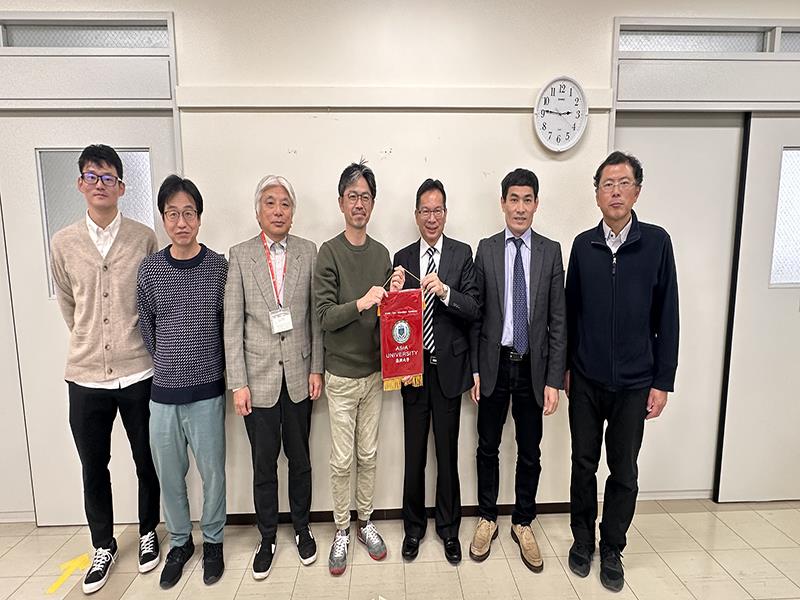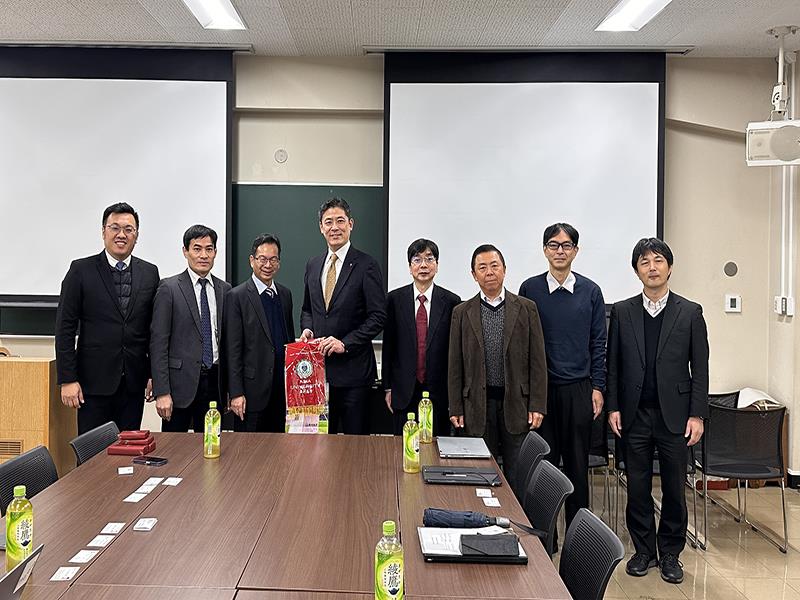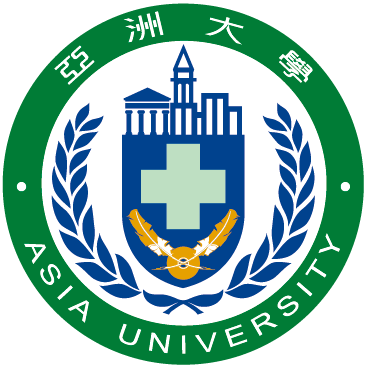Visits Fukuoka University of Technology, University of Miyazaki, and Fukuoka University to Strengthen Collaboration and Promote Academic and Research Initiatives
 Dr. Wen-Hsi Lee (3rd from right), Vice President of Asia University, with Dr. Riichi Murayama (4th from right), President of Fukuoka University of Technology,with representatives from both sides.
Dr. Wen-Hsi Lee (3rd from right), Vice President of Asia University, with Dr. Riichi Murayama (4th from right), President of Fukuoka University of Technology,with representatives from both sides.
A four-member delegation from Asia University’s AI team recently visited Kyushu, Japan, for academic exchanges with Fukuoka University of Technology, University of Miyazaki, and Fukuoka University. The visit aimed to advance dual-degree programs and joint research projects. Notably, the team plans to sign a Memorandum of Understanding (MOU) with Fukuoka University of Technology to collaborate on semiconductor talent cultivation.
The Asia University delegation, led by Vice President Dr. Wen-Hsi Lee, Director of the Office of International Affairs Dr. Ou, Jenho, Dean of the College of Information and Electrical Engineering Dr. Ching-Hsien Hsu, and Director of Industry-Academic Cooperation Dr. Chao-Neng Wang, held in-depth discussions with representatives from Fukuoka University of Technology. They explored a joint cultivation program for undergraduates and postgraduates and reached a consensus on signing an MOU. Specific collaborative plans were exchanged, particularly focusing on semiconductor talent development and academic exchange between institutions.
Dr. Baorong Ni, Vice President of Fukuoka University of Technology, highlighted the university’s world-class research capabilities in engineering and its impressive 99.6% employment rate for graduates. He expressed hope that the collaboration with Asia-Pacific University would enhance both institutions' competitiveness in fields like artificial intelligence, mechatronics, and environmental engineering.
Vice President Dr. Wen-Hsi Lee emphasized that Asia University, as the youngest university in Taiwan, is dynamic and internationally recognized for its excellence in teaching and research. The collaboration between the two institutions will create more opportunities for exchange among faculty and students.
 Dr. Ou, Jenho (3rd from right), Director of International Affairs at Asia University, and Dr. Ching-Hsien Hsu (2nd from right), Dean of the College of Information and Electrical Engineering, with the academic team from the Faculty of Engineering at the University of Miyazaki.
Dr. Ou, Jenho (3rd from right), Director of International Affairs at Asia University, and Dr. Ching-Hsien Hsu (2nd from right), Dean of the College of Information and Electrical Engineering, with the academic team from the Faculty of Engineering at the University of Miyazaki.
Following this, the delegation visited the University of Miyazaki, where they met with representatives from the Faculty of Engineering to discuss potential collaborations in semiconductor-related fields. Dr. Koji Mori, Chair of the Faculty of Engineering, shared the university’s significant achievements in semiconductor materials and mechanical engineering, as well as their innovative research applying machine learning in semiconductor processes.
Dean Dr. Ching-Hsien Hsu noted that Taiwan’s strong technology industry provides an excellent environment for learning and research. He welcomed Japanese faculty and students to exchange and study at Asia University, particularly given the university’s academic strengths in artificial intelligence, big data, and semiconductor research. Both sides discussed research cooperation, academic exchanges, and student mobility, agreeing to establish a long-term partnership in the future.
 Dr. Ou, Jenho (3rd from left), Director of International Affairs at Asia University, and Dr. Hiroshi Tatsumi (4th from left), Dean of the Faculty of Engineering at Fukuoka University, with representatives from both institutions
Dr. Ou, Jenho (3rd from left), Director of International Affairs at Asia University, and Dr. Hiroshi Tatsumi (4th from left), Dean of the Faculty of Engineering at Fukuoka University, with representatives from both institutions
The third stop of the delegation was Fukuoka University, where they met with Dr. Ming-Che Lee, Director of International Affairs, and Dr. Hiroshi Tatsumi, Dean of the Faculty of Engineering, to explore potential collaborations in semiconductor courses. Fukuoka University shared that their semiconductor program, launched last year, focuses on manufacturing technology and is supported by professors from Kyushu University.
Dean Dr. Ching-Hsien Hsu introduced Asia-Pacific University’s smart manufacturing courses and internship opportunities. He proposed starting with academic exchanges and specialized research projects, inviting senior students for exchange programs and collaborative projects under the guidance of professors, further expanding the academic collaboration between both universities.
Dr. Ou, Jenho, Director of International Affairs, emphasized that this visit underscores Asia University’s commitment to deepening international cooperation. The visit not only promotes academic and research exchanges with Japanese universities but also creates more opportunities for mutual learning and interaction among students and faculty. The university will continue to strengthen the outcomes of these partnerships and seek more innovative collaboration models to face new global challenges in education and research.





